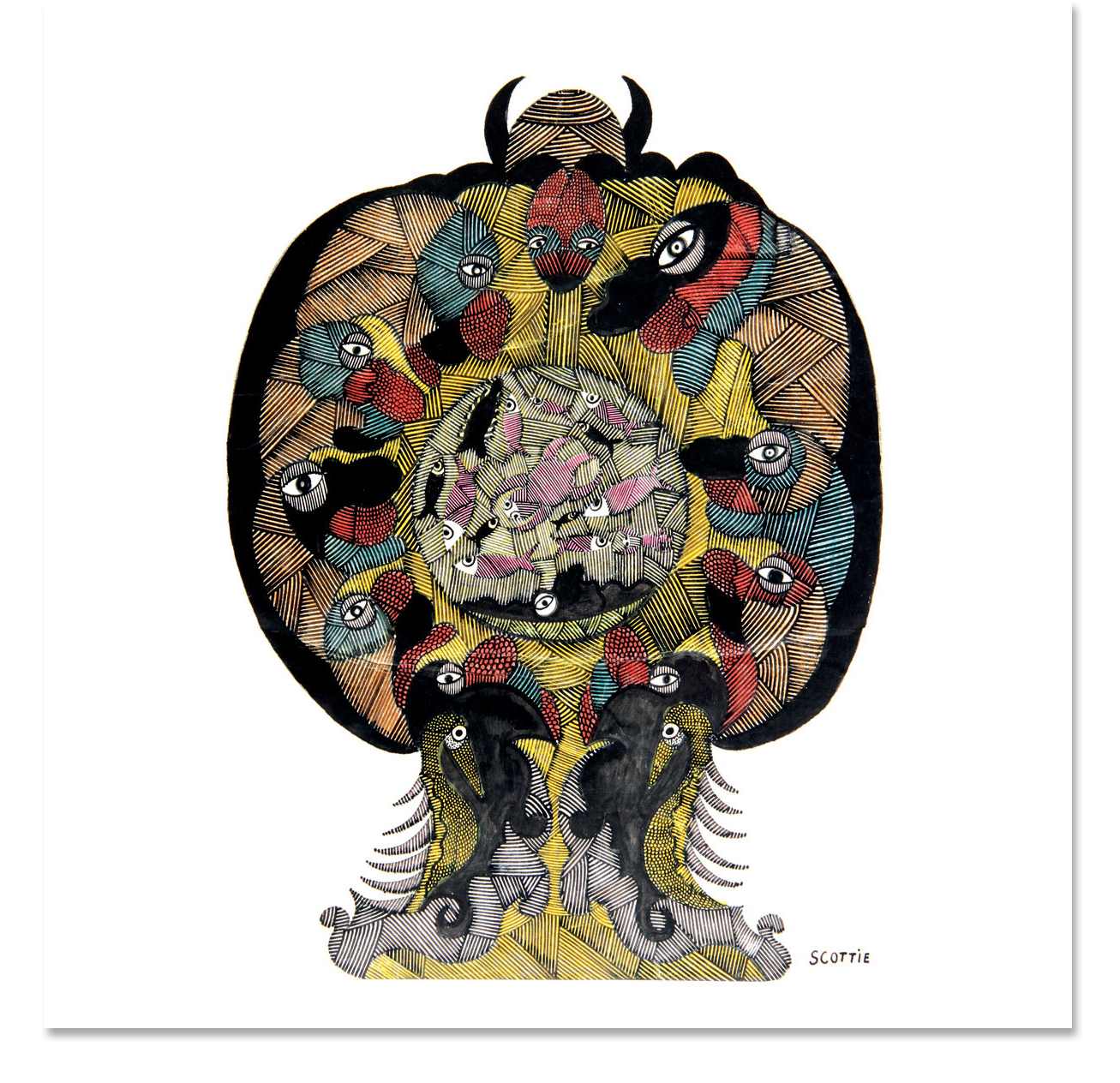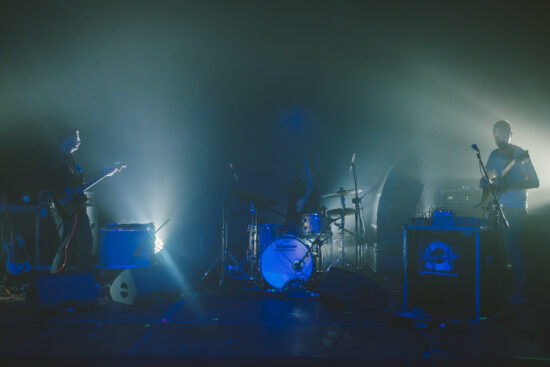Fugues is a turn towards simplicity and the possibilities it offers as well as a brilliant look at guitar traditions, distilling their essence. Yet this is by no means a minimalist work: the multitude of tracks and arrangement ideas create a densely woven narrative, This is an album you really have to engage in and find time for.
Translation: Aleksandra Szkudłapska
At a time when music is listened to at random and streaming services use algorithms to decide what we listen to, on the one hand we’d like to listen to something that goes deeper and absorbs us in full, on the other – we don’t have the time. What we need is a coherent, engaging narrative rather than an arranged sequence of tracks. Even a thought-out story will only be truly memorable if it is able to not just affect us on the surface first time around, but resonate with all its layers over a longer while.
Fugues, the third – and so far best – album by Nottingham’s Kogumaza is a brilliant, monumental and complex work, a powerful vehicle for emotions and strength. It lasts 72 minutes – the maximum length of a CD – but was released on double vinyl. Four sides, almost all of which include two combined compositions – the latter usually serves to supplement and complete the former, hence the ‘/’ in title and lack of division into separate entities.
The trio, composed of Katharine Eira Brown (of Rattle, with whom I spoke and who I wrote about), Neil Johnson and Chris Summerlin, has been around for more than a decade, and Fugues seems to be their crowning point, their absolute opus magnum. It’s worth noting that all three musicians are also active in other outfits and special ensembles accompanying Glenn Branca or Ex-Easter Island Head.
Kogumaza outline their idea for the album already in the title: fugue stands here as much for the musical form, as for a type of mental disorder (an original take on the latter is the subject of Agnieszka Smoczyńska’s recent film). Looking at subsequent compositions, while formally they are on this path (from exposition, through development, to the final), this is not an obvious solution – in fact, the band often builds very complex structures, where individual motifs undergo constant development. Cosmic repetitions are subject to minor modifications, and the basic line-up of two guitars and drums builds a rich and succinct multi-layered narrative, which still manages to sound light and fresh.
Fugues is a feast of lengthy suites with a simple yet consistently evolving narrative. The pieces on each side form separate stories, though may sometimes include small ties, like between “Sub-Photic” and “Chrysalism / Live in Time” or the motif from the opening “Io” resounding in the final “Live in Time”, framing the entire album. The album offers a thorough survey of the guitar scene, including its heavier incarnation – associations include Earth, march/trance forms resembling Swans, heavy Black Sabbath-style(!) riffs, even psychedelic Sonic Youth outings. At the same time, Kogumaza keep playing in their own, unique and distinctive way, shaping a novel musical language – the guitars are spacious and solid post-production work influenced the selective and mighty sound of the material. Katharine Eira Brown’s drumming is far from obvious – there are mallets, kettledrums and occasional cymbals, but basically nothing like a raw snare or hi-hats. The focus on drums comes across perfectly in “Sub-Photic”, which is built around a dry, almost desert-like sound. On the other hand, in aspects where Kogumaza could have followed the beaten track, they instead offer a positive surprise: whether in the form of a refreshing 12/8 metre, post-punk overtones in “Exploding Head Syndrome”, showing their music in an entirely different light, imaginative chord transitions in the opening of “Bolan” or the structure of entire tracks. If “Chrysalism” was played by Swans or Godspeed You! Black Emperor, repetitive pathos would probably be oozing from the speakers from minute eight (for at least another eight minutes), but Kogumaza confuse the listener. Everything gets very powerful around 8:50, the sound accumulates, with the cymbals, bells and guitars coming to the fore, then slowing down and becoming more dense, only to enter a new level in minute ten – the entire composition is brilliantly structured: the growing heaviness disappears in an instant, and the suite really speeds up.
The record was made over four years, but it sometimes sounds as if it were created by a complex, almost orchestral line-up rather than just three people. Fugues is a turn towards simplicity and the possibilities it offers as well as a brilliant look at guitar traditions, distilling their essence. Yet this is by no means a minimalist work: the multitude of tracks and arrangement ideas create a densely woven narrative, a post-Swansian one, I’m tempted to say: with more content, more ideas, more ‘wow’ factor. This is an album you really have to engage in and find time for. Full of emotions, yet not pathetic or heavy. Effortless and free, yet monumental and epic at the same time. The production process supplements compositional ideas, recording in various locations and an engrossing narrative. But the best thing is this: when the 72 minutes are gone – in the present era of excess and lack of time – I want to play it again right away.
Kogumaza, Fugues, Low Point
LISTEN 🎶 Tidal 🎶 Spotify 🎶 Deezer 🎶 Apple Music




